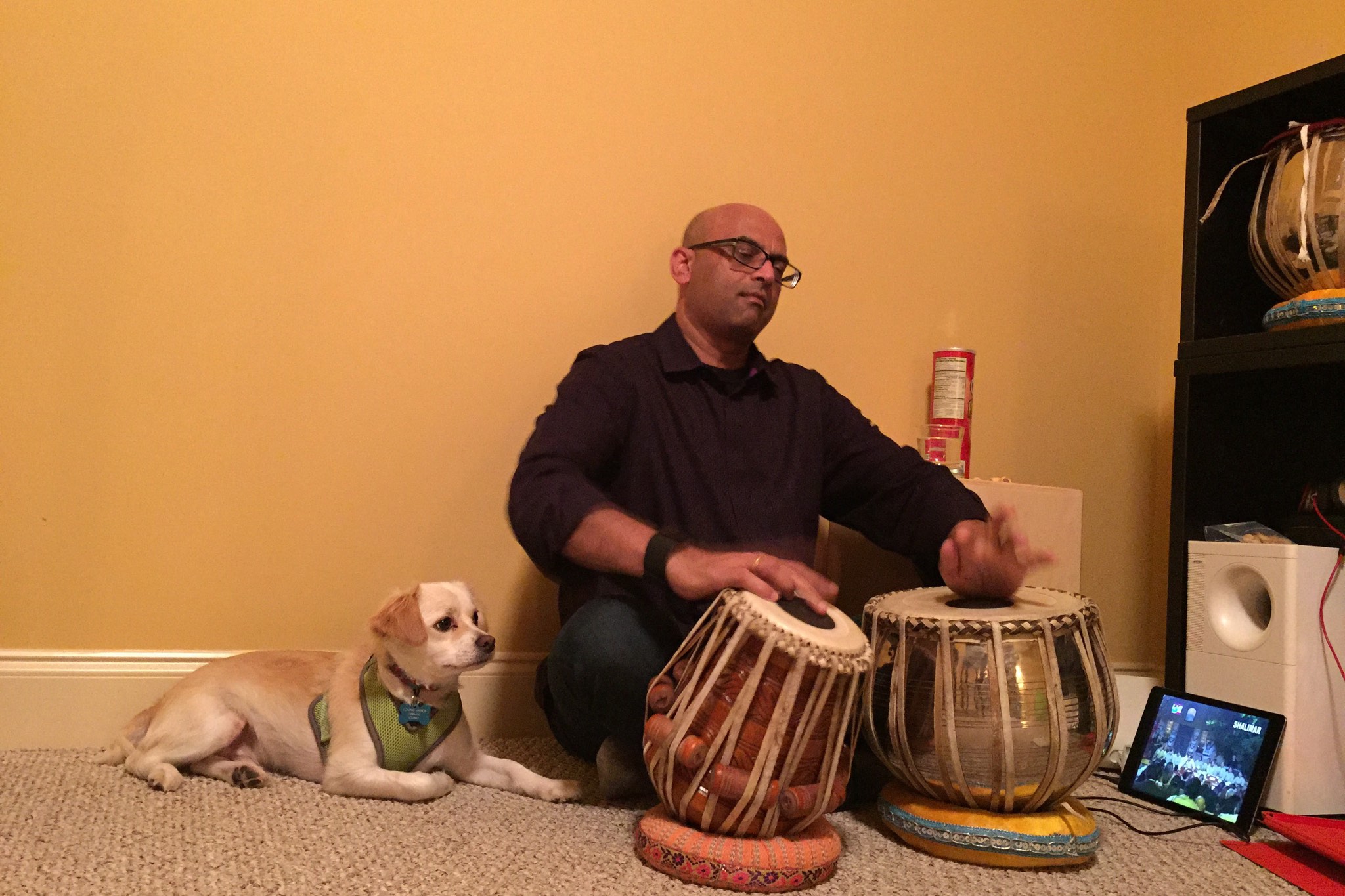Friday evening decompression
I do not know who the original poet but this is of the category Bhajans and one of the original singers of this is Meera – who dates back to the early sixteenth century.
“Saanson ki malaa pe simrun main pee ka naam
Apne man ki main janoon aur pee ke mann ki Ram”
Roughly translated…
“With every breath I breathe, I take the name of my beloved
I know my heart (what it desires), and God knows of the heart of my beloved (what she desires)”
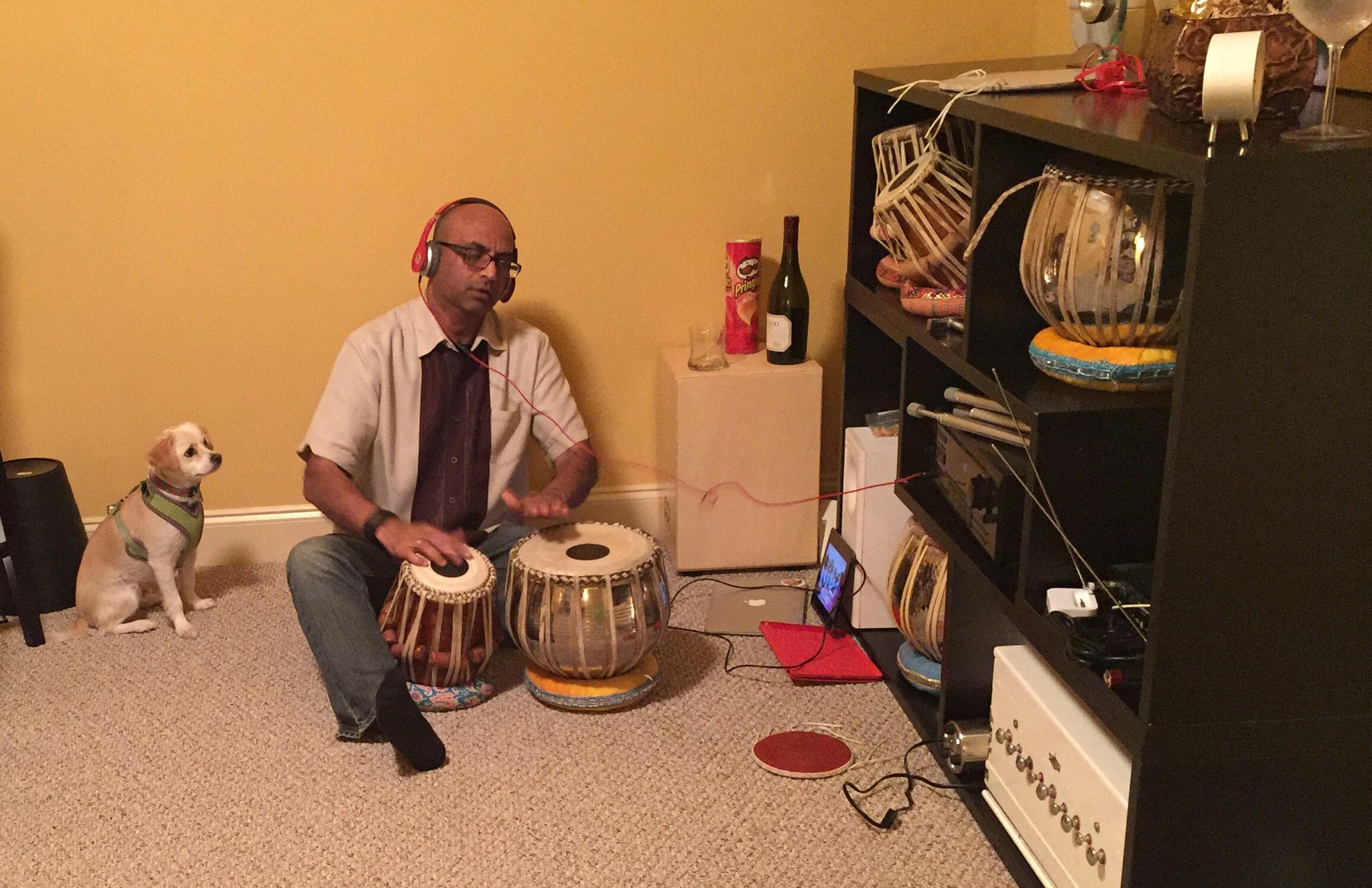
Another hectic week. Another Friday evening decompressing with Jay Jay.
This one is my Ghulam Ali..
Karte Hain Mohabbat Sab Hi Magar
Har Dil Ko Sila Kab Milta Hai?
Aati Hain Baaharein Gulshan Mein
Har Phool Magar Kab Khilta Hain?
Roughly translated…
Everybody falls in love, but
How many hearts reach what they seek?
Spring comes and visits every garden, but
How many buds really get to bloom?
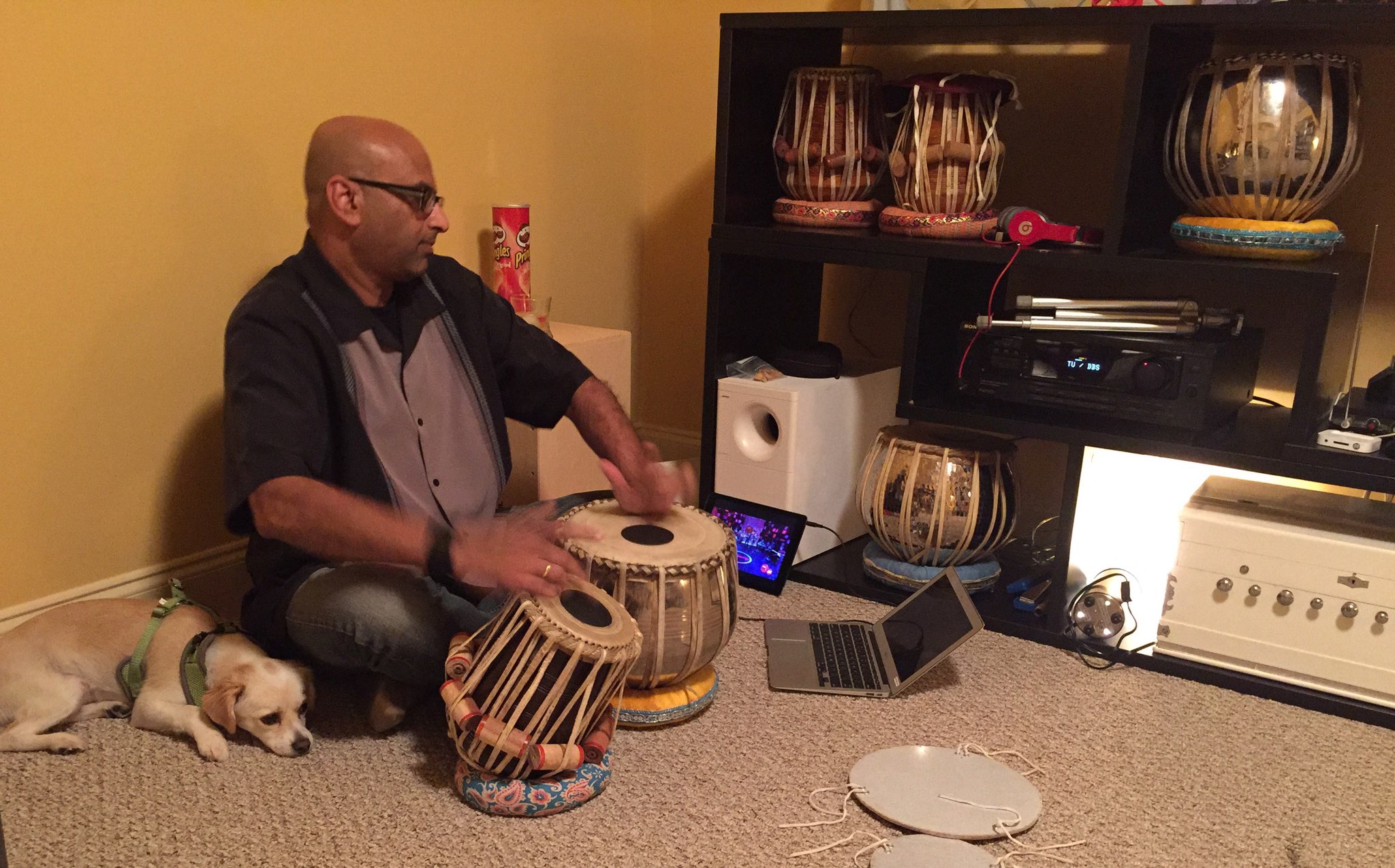
Friday night decompression…
Today’s featured song is one from Kabir. Kabir was a 15th century mystic poet from India. The song is sung by Nirali Kartik and Mooralala Marwada (under the aegis of the group Maati Bani). This is a song of the Banjaras – the tune is typical of them. The original nomadic tribes that started from Arabia eventually reached various parts of the world – the ones that went to Romania and now Europe are often referred to as “gypsies”. The ones that made it to India are often called (among other names) “Banjara”. Banjara also refers to the distinct (folk song) music they sing to.
“Chakki chal rahi, Kabira baitha royee
Dono pud ke beech me saajha na nikle koi
Chakki chal rahi Kabira baitha joye
Khoonta pakdo nij Naam ka, to sajha nikle jo soyee”
Chakki refers to a millstone (used to grind grains). It metaphorically refers to the grindstone of Time.
Khoonta refers to the middle hub (axis) of the hubstone that does not move.
Dono pud – this refers to the two stones in a millstone. Metaphorically, it refers to the Heaven and Earth
Roughly translated (adapted from somebody else)
…
The millstone (of Time) grinds on, Kabir weeps (watching the inevitable)
Between the two stones (wheeling heaven above and turning earth below) no one escapes unscathed (like the grains between the millstones)
The millstone grinds on, Kabir still sits there watching
Grab hold of the hub (of the millstone) of the name (soul) that is yours, (for) that is the path to your deliverance.
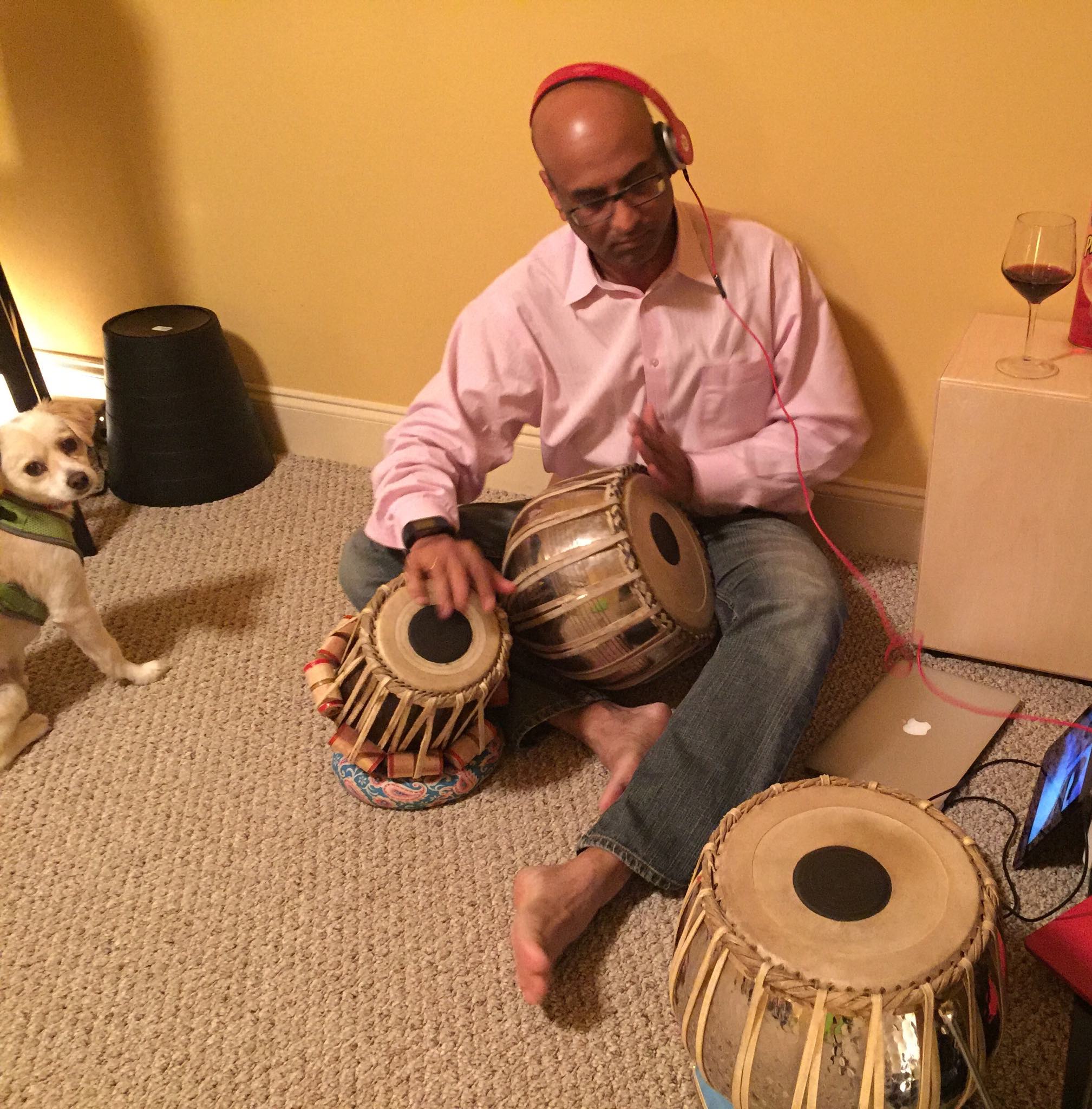
Weekly decompression
This week’s featured song is “Baisara Beera”. It is a Rajasthani song; like every other Rajasthani song, it has a lovely haunting tune. And like every other Rajasthani song, I am clueless about the meaning of the words. I think here the lady is addressing her husband and asking him to take her to her father’s house because she is missing him.
In fact, I think “Baisara Beera” is one of the traditional ways of addressing your husband in Rajasthan. This is long time back when a woman would not address her husband directly. “Baisara”, I believe is sister in law. And “Beera”, I know is brother. So she addresses him indirectly – “My sister in law’s husband”! I remember my grandfather used to address my grandmother similarly indirectly – like “Manju-r Ma”!! (Manju is my mom’s name – and Ma means mother).
Going back to the song, while it is a Rajasthani Song, it is sung by two Assamese singers – Angarag Mahanta (Papon) and Kalpana Patowary. and later in the song, they mix in some Assamese folks songs too.

Me and my dog…
Enough of investor meetings and board meetings and shuttling between New York City and Washington DC. Now is the personal time for me and my dog to relax…
“Abhi unke hasney ke
Din hain, woh has lein
Abhi mere ronay ke
Din hain, main ro loo
Magar ek din unko
Rona parega
Ke jis din bhi meri
Mayiaat uthegi ”
Roughly translated…
Now is the time for her to laugh
Let her laugh
Now is the time for me to cry
So, let me cry
But there will come day
When even she will have to cry
And that will be the day
When my funeral will be brought by
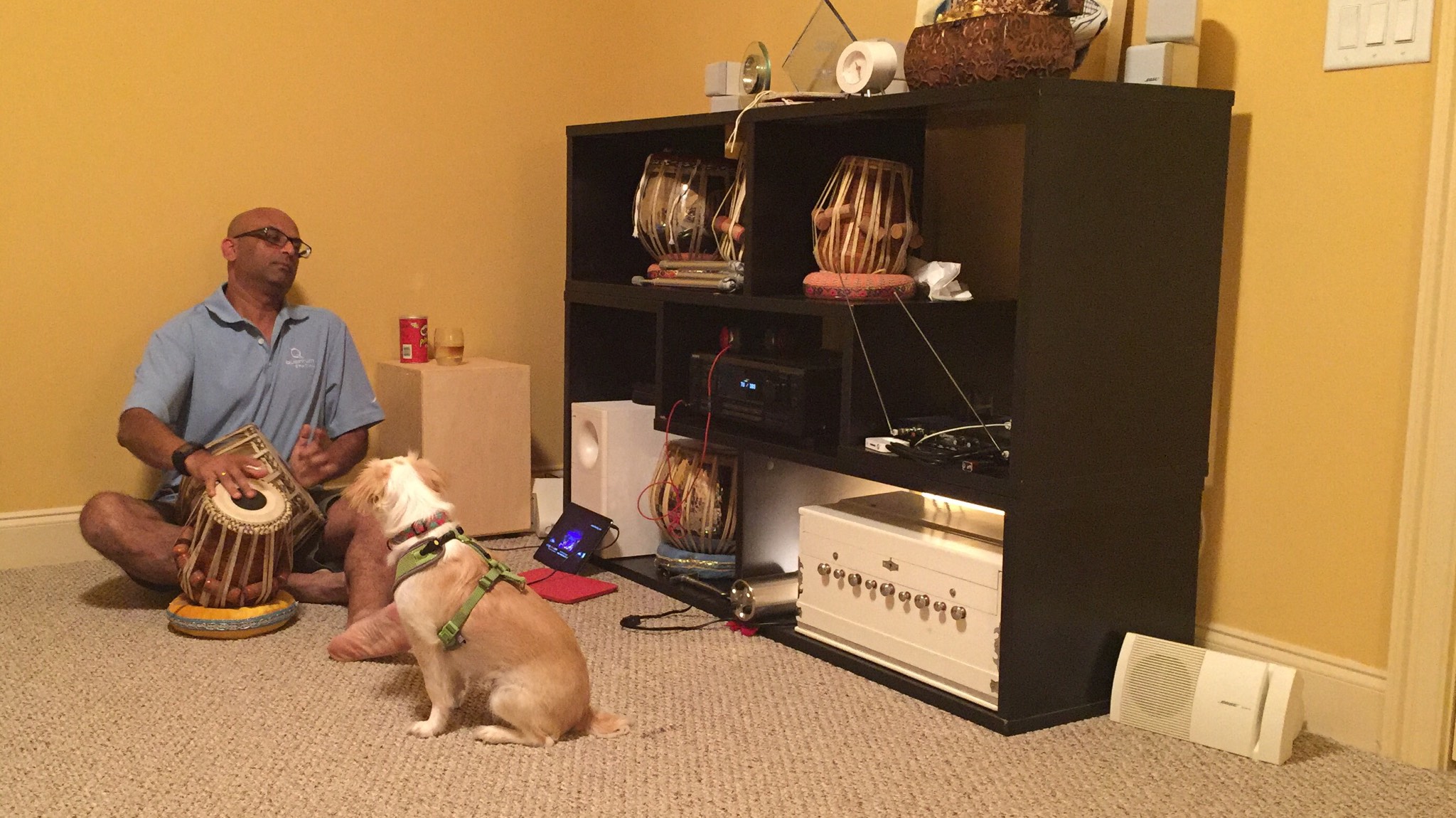
Friday evening time…
“dard ho dil mein to dawaa keejay
dil hi jab dard ho to kya keejay
hum ko fariyaad karni aati hai
aap suntay nahi to kya keejay”
Roughly translated…
“If there is pain in your heart, you can take medicine for it
But when heart is itself pained, what can you do?
Sure, I am perfectly capable of complaining too
But when you are not listening anyways, what can I do?”
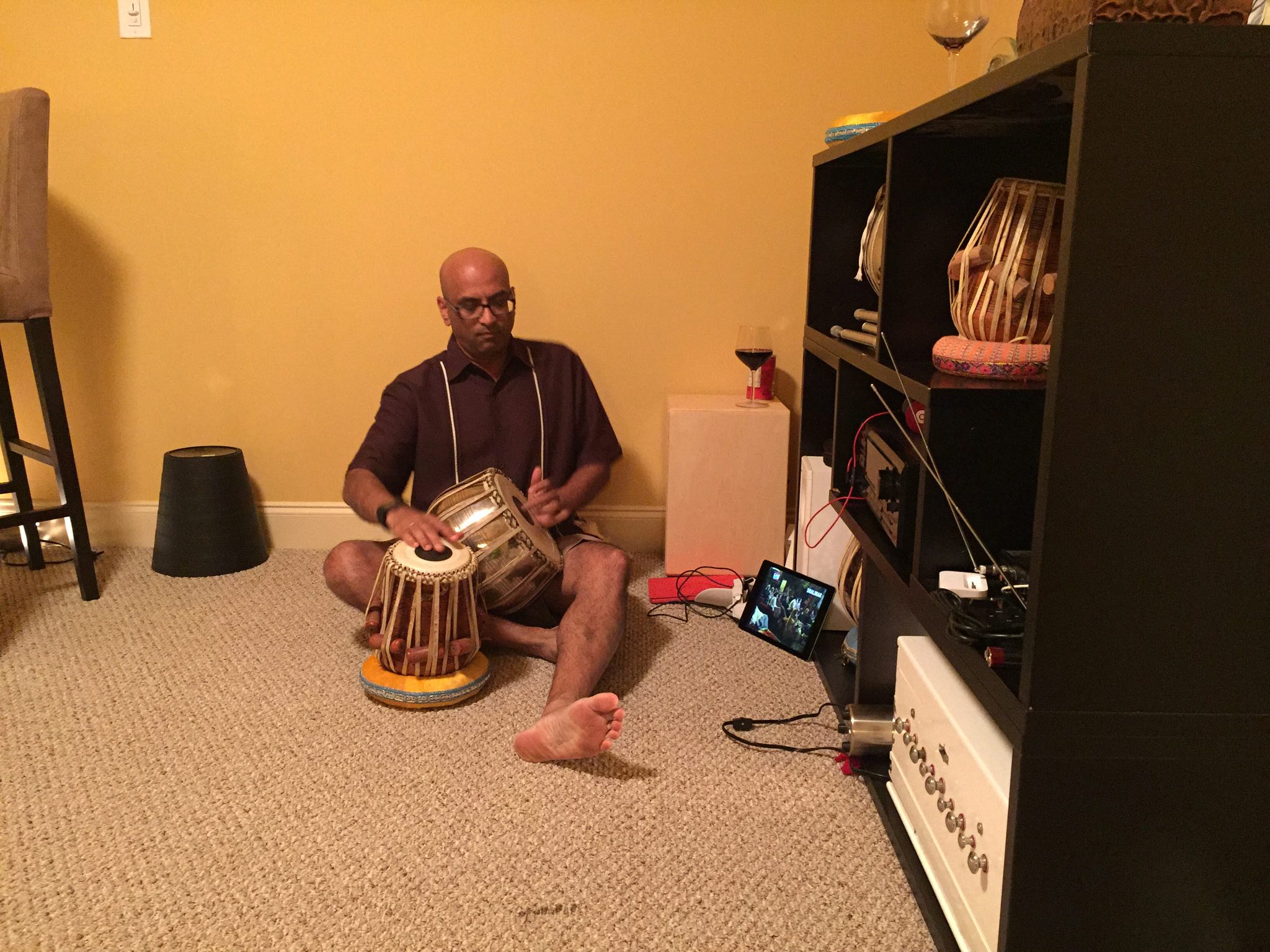
Friday routine
“Main nazar se pee raha hoo
Ye samaa badal na jaay
Na jhukaao tum nigaahein
Kahin raat dhal na jaay
….
Mujhey phoonkay se pehlay,
Mera dil nikaal lainaa
Ye kisee kee hai amaanat
Mere saath jal na jaay.”
Roughly translated… (improvements welcome)
“I am drinking in the beauty of your eyes,
Let this moment not change ever
Don’t even lower your eyes
For the night may melt away
…
Before you all cremate me
Make sure to take my heart out
It actually belongs to somebody else
Ensure it does not burn away with me”
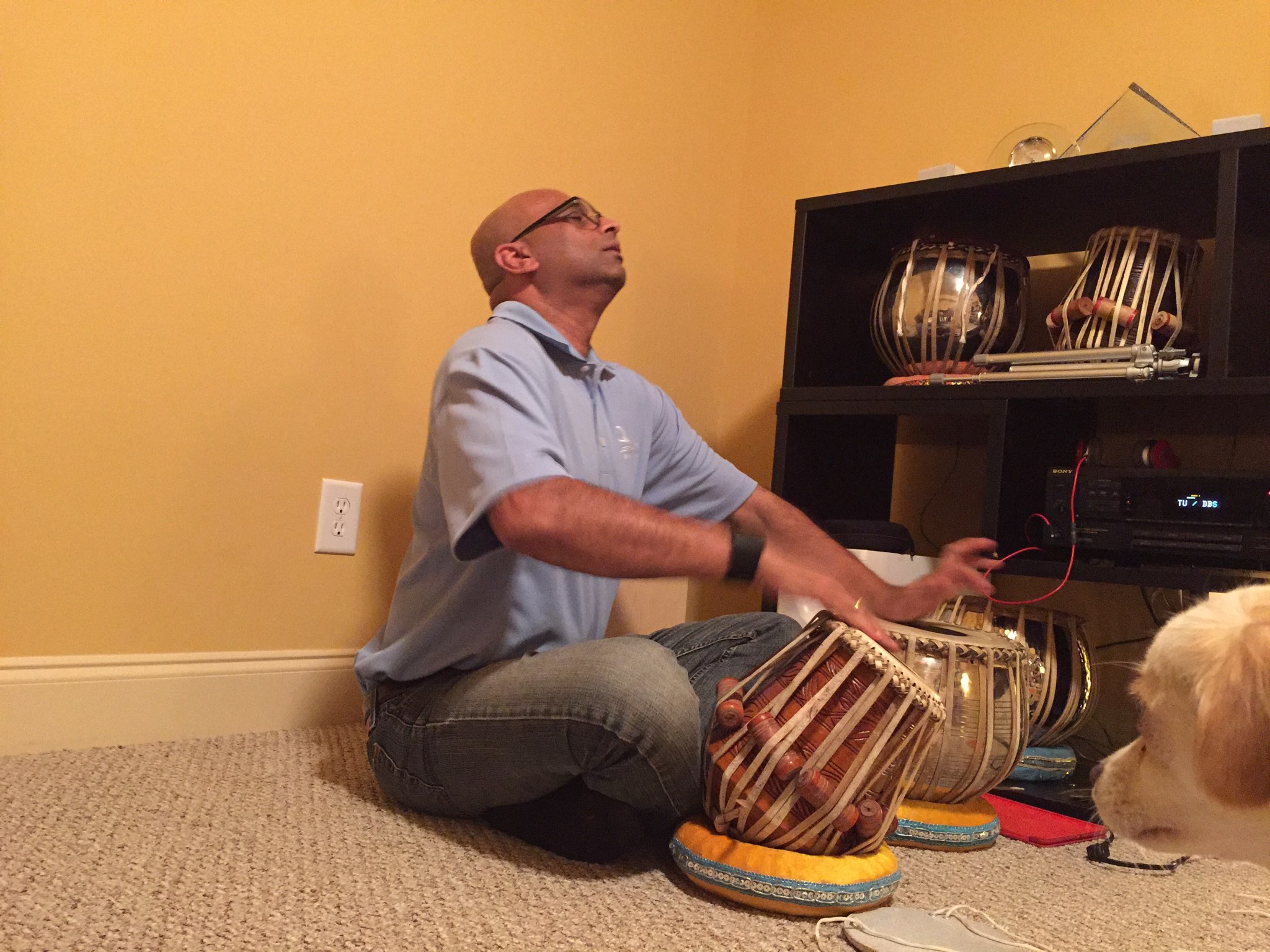
Friday evening music…
“Aap gairon ki baat karte hain
Humne to apne bhi aazmaein hain
Log kaaton se bach kar chalte hain
Humne to phoolon se zakhm khaayen hain
Mohabbat mein akeli jaan pe
Kay Kya aazab aayein
Kabhi kaanto mein main soya
Kabhi phoolon me khwab aayein”
Roughly translated (improvements always welcome)
“You keep complaining about strangers
I have tried acquaintances too
People stay clear of the thorns
But I have been hurt by the flower itself
Love has, to this lonely heart
Brought troubles of so many sorts
That sometimes I have slept among thorns
And sometimes I have dreamt of flowers”

The Sufi Queen…
Wrapping up a hectic week with some winding down with Abida Parveen. There are very few singers I have heard that can scale as many octaves as she can….
Here she sings…
Yaar Ko Humne Ja-ba-ja Dekha
Kahin Zahir Kahin Chupa Dekha
Kahin Momkin Hoa Kahin Wajib
Kahin Fani Kahin Baqa Dekha
Going by somebody else’s translation (as always improvements welcome)…
I saw my beloved in all I saw,
At times revealed, hidden at times.
At times a possibility, at times an imperative,
At times ephemeral, at times eternal…
Also, I am not very sure of the poet but it probably was Hazrat Shah Niaz.

